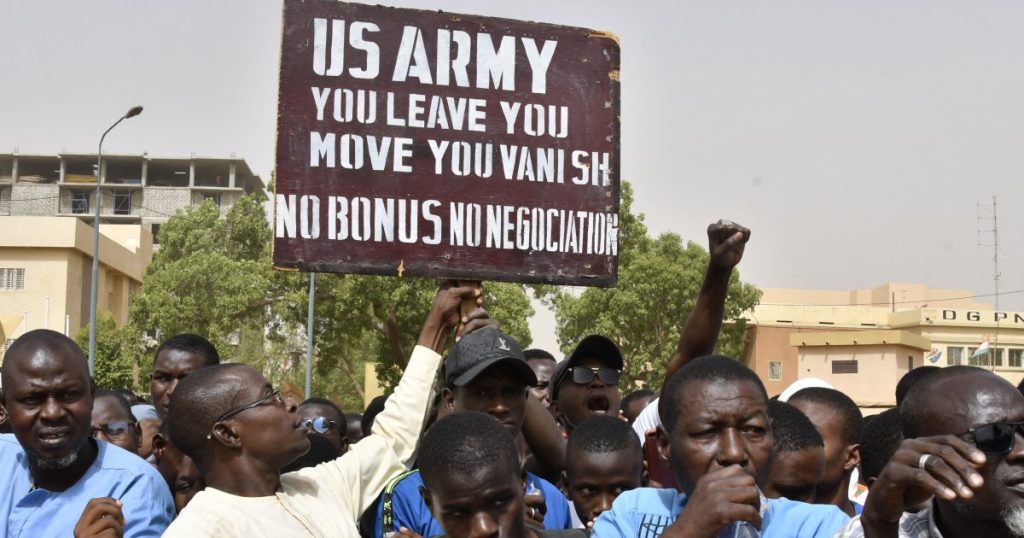In March, Niger suspended its military cooperation with the US after military government leaders severed ties with France last year. Protesters in the capital of Niger took to the streets demanding the departure of United States troops, after the military government ended a military accord with the US and welcomed Russian military instructors. The crowd, marching through central Niamey waving Nigerien flags, showed support for the military government’s decision to revoke the agreement that allowed around 1,000 US military personnel to operate on its territory from two bases. Chants of “Down with American imperialism” were heard during the demonstration.
Niger had been a key security partner of France and the US in efforts to curb a decade-old rebellion in West Africa’s Sahel region. The US military had around 650 personnel in Niger in December, primarily operating from a major airbase in Agadez used for surveillance flights and other operations. The drone base, known as Air Base 201 near Agadez, was built at a cost of over $100 million and has been utilized to target ISIL (ISIS) fighters and an al-Qaeda affiliate in the Sahel region. In response to the military coup and the government’s decision to end the military agreement with the US, protesters in Niger expressed their opposition to the American presence in the country.
Following the coup in Niger that saw the overthrow of the democratically elected President, France agreed to withdraw its troops in September. The new authorities in Niger, similar to Mali and Burkina Faso, ended military deals with Western allies, left the regional political and economic bloc ECOWAS, and strengthened ties with Russia. Russian military instructors and equipment arrived in Niger, marking a closer cooperation with Moscow and a shift towards bolstering Russian influence in Africa. Despite some citizens expressing concerns about potential Russian military bases in Niger, the military government’s openness to cooperation with Russia was evident during the protests.
Protesters at the demonstration expressed their opposition to the American military presence in Niger and their support for the military government’s decision to end the military agreement with the US. Some protesters carried signs calling for the US to leave Niger, while others chanted slogans denouncing American imperialism. The arrival of Russian military instructors and equipment in Niger highlighted the country’s shift towards closer cooperation with Moscow, generating concern among citizens about the possibility of permanent Russian military bases in the country. The coordinator of a civil society group that led anti-French protests last year voiced concerns about foreign military presence in Niger.
The future of military cooperation between the US and Niger remains uncertain as the US troops have not yet left the country despite the revocation of the military agreement. The relationship between Niger and Western allies like the US and France has altered significantly following the military coup and the government’s decision to sever ties with these countries. The military government’s willingness to welcome Russian military instructors and equipment indicates a strategic shift towards strengthening ties with Moscow and increasing Russian influence in Africa. Despite concerns among some citizens about the potential establishment of Russian military bases in Niger, the government’s actions suggest a commitment to closer cooperation with Russia.













